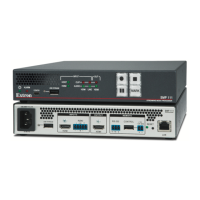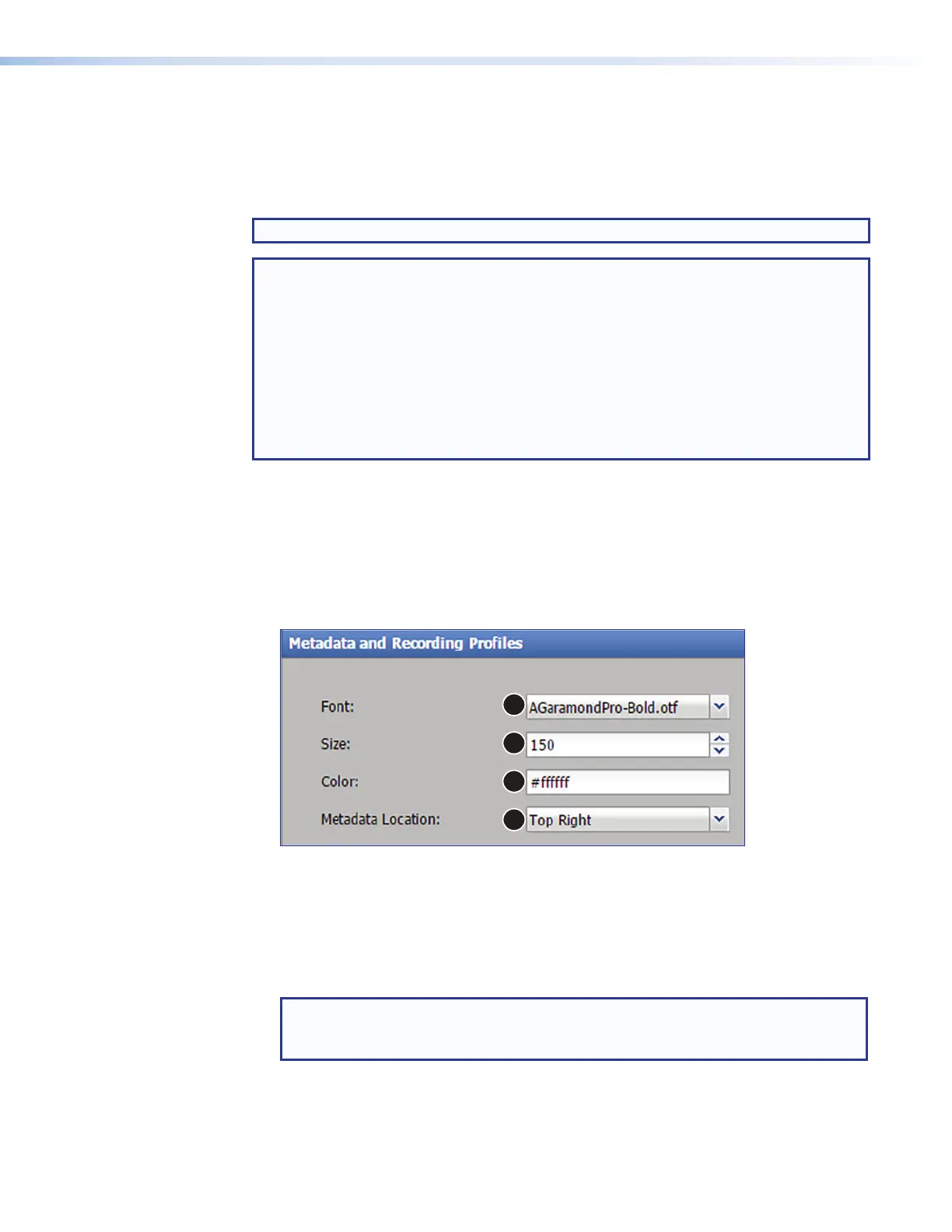SMP111 • Web-Based User Interface 44
Changing the Font and Text Settings Used for the On-screen Display
If optional fonts are uploaded to the SMP111, you can select and use one for displaying
OSD text instead of the default font. Size and color can be selected for the OSD text.
Optional fonts must be uploaded to the fonts folder within the SMP from the File
Management page or by using an SFTP client program before selecting it in this page.
TIP: Many free, open source fonts are available at https://www.google.com/.
NOTES:
• The SMP supports TrueType™ (.ttf) and OpenType
®
(.otf) fonts.
• To upload a font file, use the file upload utility within the File Management page
(see File Management on page 59).
• The user is responsible for obtaining necessary font licenses before uploading fonts.
• After changing the font, some text may appear truncated in the OSDs because
characters may be wider in the selected font than in the system default font.
• The font, size and color will be dependent on the Metadata settings (see
Configuring Metadata Elements on page 51).
To select a different font and change the size and color:
1. Open the Encoding & Metadata page (see Encoder Settings and Metadata on
page 49).
2. Expand the Metadata and Recording Files panel.
3. Navigate to the first panel in the left corner and select an available font from the Font
drop-down list (see figure 26,
1
). The selected font is immediately applied to both the
input switching OSD and the universal OSD.
1
2
3
4
Figure 26. Change Font in Metadata and Recording Files
4. To change the size, enter a number into the Size field (
2
) or click the Up and Down
arrows to adjust the value. The number is a percentage of the baseline font height, from
40 to 120%, with 100 being the default.
5. To change the font color, enter a six-character hexadecimal color value into the Color
field (
3
). The default color is #ffffff (white).
NOTE: Consult a hex color table, if needed. Each pair of characters represents the
bits for the percentage of red, green, and blue, respectively. For example, red is
represented by #FF0000, which is 100% red, 0% green, 0% blue.
6. To change the location of the OSD, select a location from the Metadata Location
drop-down list (
4
).
figure 26

